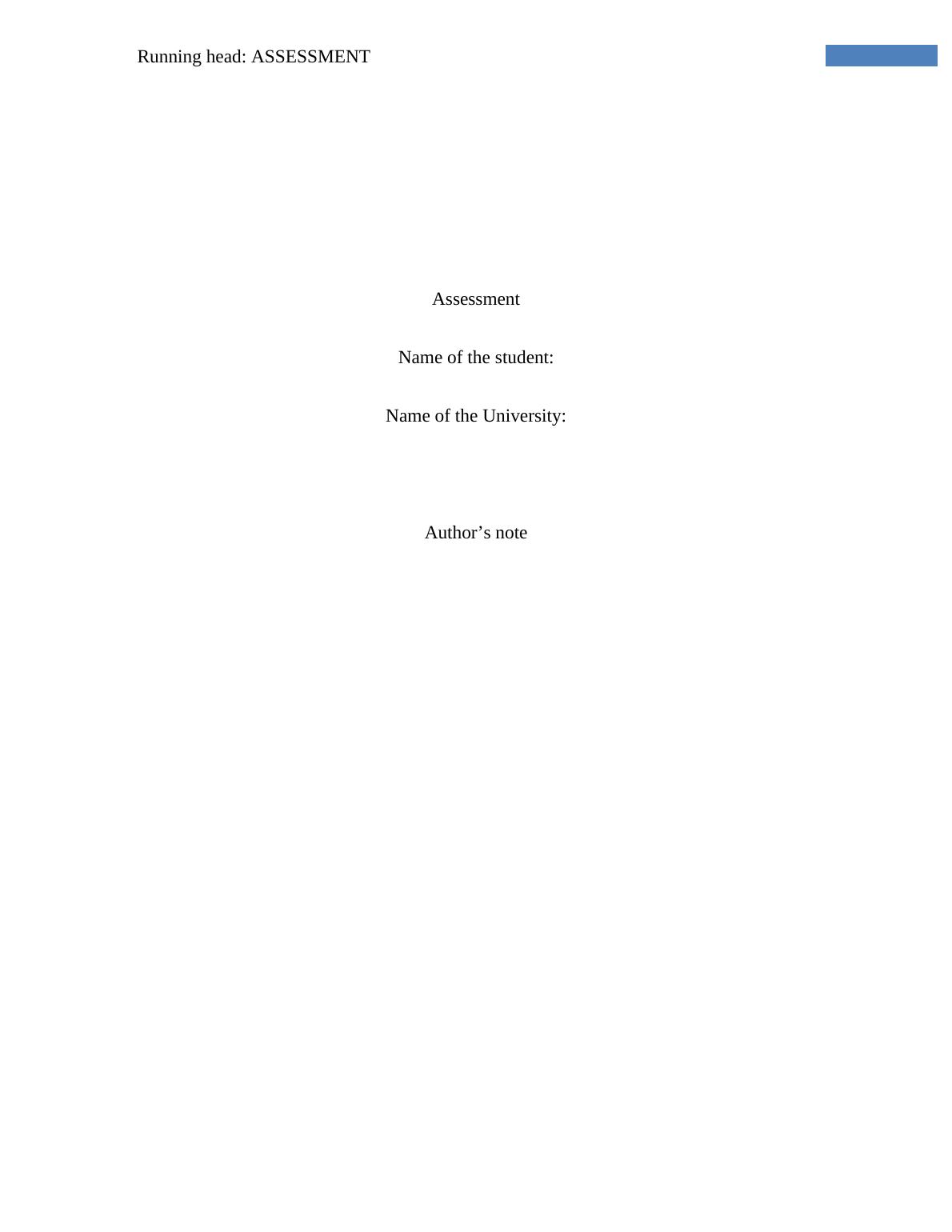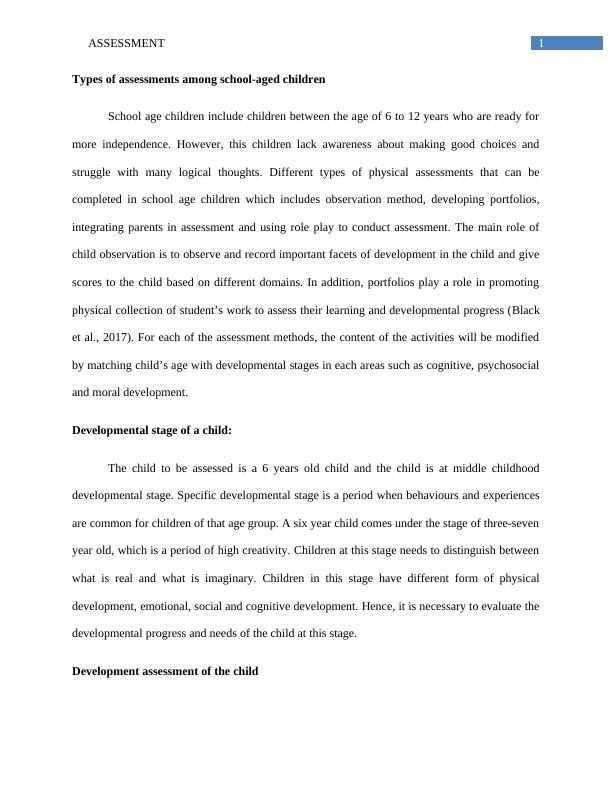Types of Assessments Among School-Aged Children
5 Pages1110 Words314 Views
Added on 2022-11-13
About This Document
This document discusses the different types of physical assessments that can be completed in school age children which includes observation method, developing portfolios, integrating parents in assessment and using role play to conduct assessment. It also talks about the developmental stage of a child and how to developmentally assess the child using the concept of Erickson, Piaget and Kohlbery theory on development to assess whether appropriate physical, cognitive and social development is occurring in the child or not.
Types of Assessments Among School-Aged Children
Added on 2022-11-13
ShareRelated Documents
End of preview
Want to access all the pages? Upload your documents or become a member.
Early Childhood Development by Piaget
|6
|1430
|16
Developmental Theories of Different Ages
|5
|693
|193
Theoretical Perspectives on Physical Development in Children
|4
|1055
|380
Cognitive Development: Piaget's Theory and Stages
|5
|1052
|43
Developmental and Atypical Psychology: Cognitive Development and Schizophrenia
|12
|2660
|60
Theory of Cognitive Development Assignment
|7
|1636
|432


